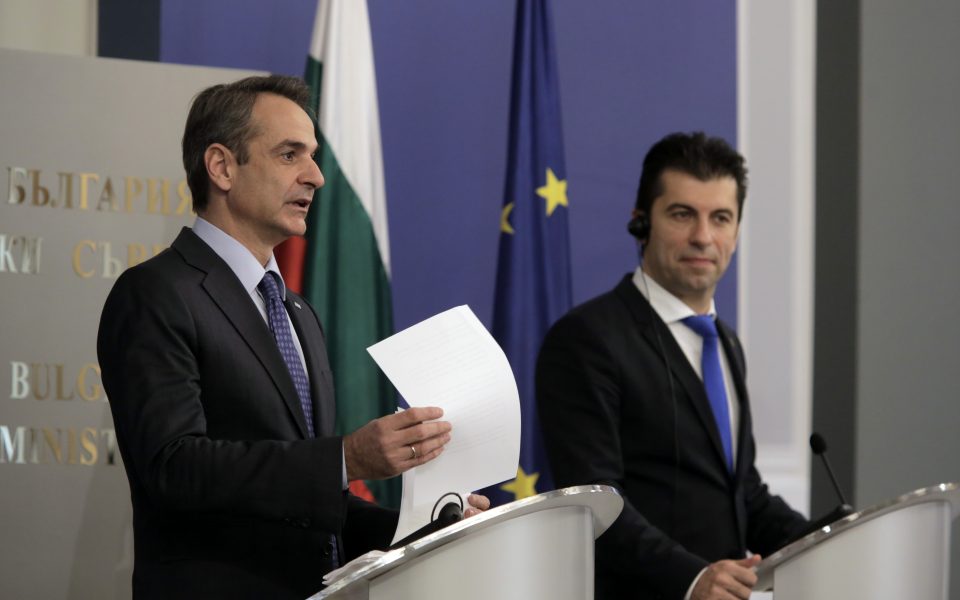Bulgaria, Greece talk energy cooperation, regional stability

Leaders of Bulgaria and Greece on Monday discussed bilateral cooperation in the energy sector, with an emphasis on reducing their reliance on Russian gas through the speedy completion of a key gas interconnector linking the neighboring countries.
Greek Prime Minister Kyriakos Mitsotakis who is the first European leader to visit Bulgaria since the formation of a new government there, met with his Bulgarian counterpart, Kiril Petkov, and the country’s president, Rumen Radev.
“The project is of strategic importance for Bulgaria and Greece and the two countries have already agreed to complete it as quickly as possible,” Mitsotakis noted after the meeting.
The interconnector is important for Bulgaria because it would mark the first break of the Russian monopoly on the Bulgarian gas market. It will link to a pipeline that transits Azerbaijani gas from Greece to Italy.
Bulgaria already has a deal with Azerbaijan to import annually one billion cubic meters of gas, or nearly one-third of its consumption.
Speaking about the chances of European Union membership for the countries of the Western Balkans, Mitsotakis said Athens is in favor of a formal start of talks with North Macedonia and Albania as soon as possible, subject to their meeting membership criteria. North Macedonia’s membership has been held up by Bulgarian demands, and since the two countries’ EU track is linked, Albania is also delayed.
Mitsotakis also called on Turkey to end “provocations in the Aegean and the East Mediterranean … if it wants to normalize bilateral ties and relations with the European Union.”
Asked by reporters about the challenges for Greece and Bulgaria because of the pressure from immigration, Mitsotakis said that their external borders are also European borders.
“Both countries are protecting [the borders] effectively, with respect to human rights,” he said. [AP]





